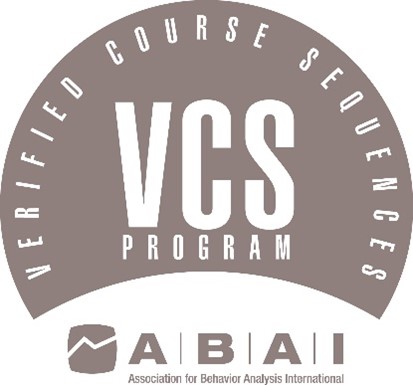Applied Behavior Analysis Concentration
Completing coursework and field experience in ABA at the undergraduate level can lead to certification that is highly sought after by employers looking for direct service staff for individuals with Autism Spectrum Disorders and related Intellectual and Developmental Disabilities.
Individuals with bachelor’s-level training often work directly with individuals to implement intervention plans (e.g., use strategies to increase social, communication, academic skills; decrease problem behavior) in various settings (e.g., clinic, home, school), gather data, and assist with maintaining records. In this role, they work under the supervision of a Board Certified Behavior Analyst, which is a master’s-level certification.
Coursework for the ABA Concentration
Students may declare ABA as their concentration. The concentration shows that you have more in-depth knowledge about an area of psychology. To complete the concentration, you must take at least four of the following courses, two of which are required.
| Required | |
| PSYC 4570 | Behavior Analysis and Intervention |
| PSYC 4020 | Learning |
| Plus two of the following: | |
| PSYC 3150 | Small-n Research Methods |
| PSYC 4030 | Conceptual Analysis of Behavior |
| PSYC 4414 | Laboratory in Applied Behavior Analysis |
| PSYC 4810 | Practice and Ethics in Behavior Analysis |
What if I am interested in certifications in ABA?
Two certifications that can potentially be earned that would set you apart from others when looking for work in this area.
- Registered Behavior Technician® (RBT®)
- This is “a paraprofessional certification in behavior analysis. RBTs assist in delivering behavior analysis services and practice under the direction and close supervision of an RBT Supervisor and/or an RBT Requirements Coordinator, who are responsible for all work RBTs perform” (BACB, 2020).
- The content for this certification will be covered in PSYC 4570 - Behavior Analysis and Intervention. You will also need to complete a competency assessment and pass an exam to receive this credential. For more information about the BCaBA certification, visit the BACB website.
- Board Certified Assistant Behavior Analyst® (BCaBA®)
- This is “an undergraduate-level certification in behavior analysis. Professionals certified at the BCaBA level provide behavior analysis services under the supervision of Board Certified Behavior Analyst® (BCBA®). BCaBAs may supervise the work of Registered Behavior Technicians.” (BACB, 2020).
- To get this certification, you will need to take all of six of the courses listed above*, complete fieldwork, obtain your undergraduate degree, and pass an exam. For more information about the BCaBA certification, visit the BACB website.

- The Association for Behavior Analysis International has verified the following courses toward the coursework requirements for eligibility to take the Board Certified Behavior Analyst® or Board Certified Assistant Behavior Analyst® examination. Applicants will need to meet additional eligibility requirements and demonstrate they reside in an authorized country and province [Canada] before they can be deemed eligible to take the examination.
1. PSYC 4570 Behavior Analysis and Intervention
2. PSYC 4020 Learning
3. PSYC 3150 Small-n Research Methods
4. PSYC 4030 Conceptual Analysis of Behavior
5. PSYC 4414 Laboratory in Applied Behavior Analysis
6. PSYC 4810 Practice and Ethics in Behavior Analysis - The BCaBA VCS is number for the 5th Edition is 51488. You can follow the link to learn more about the content covered within each course.
- Please note that effective January 1, 2026, the VCS system will end. After that time, the behavior analysis coursework can still be used to apply for certification (Pathway 2) via the coordinator’s attestation.
Potential Benefits of taking the courses:
- Flexibility of online asynchronous courses
- Potential for certification as a Registered Behavior Technician (RBT) or Board Certified Assistant Behavior Analyst (BCaBA) depending on the number of courses and field experience completed
For questions about the Applied Behavior Analysis concentration, contact Dr. Sara Kupzyk
Please note: The Association for Behavior Analysis Verified Course Sequence (VCS) System is being discontinued in January 2026.
Applying for certification BEFORE December 2026
Students who plan to submit their application for their BCaBA before December 2026 are eligible to apply under Pathway 2 - Verified Course Sequence. The UNO program is currently an approved VCS.
Applying AFTER December 2026
Effective January 1, 2027, the new eligibility requirements will apply. This means that students will apply under Pathway 2 - Coursework Requirements (not VCS).
The UNO undergraduate concentration courses have been designed to meet the BCaBA coursework requirements. Students will need the Pathway 2 Program Contact, Dr. Sara Kupzyk, to review and provide an attestation for courses completed. Applicants will need to meet additional requirements to qualify to take the BCaBA exam (e.g., fieldwork).
For questions about the Applied Behavior Analysis concentration, contact Dr. Sara Kupzyk